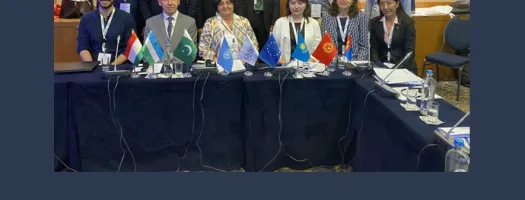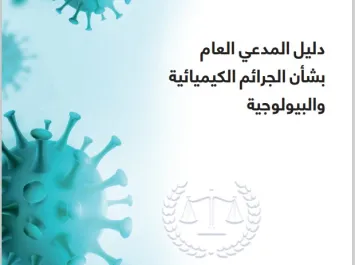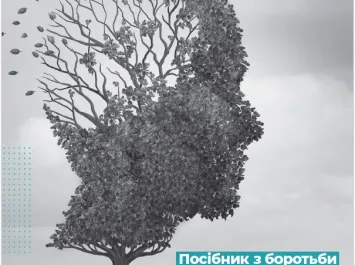The 18th Round-Table Meeting (RTM) for Central Asia under the European Union Chemical, Biological, Radiological and Nuclear Risk Mitigation Centres of Excellence (EU CBRN CoE) Initiative took place in Brussels on 13 June 2023.
The meeting focused on reviewing the implementation and achievements of EU CBRN CoE Project 53 “Strengthening National Legal Framework and Provision of Specialized Training on Bio-Safety and Bio-Security in Central Asian Countries.” It provided an important opportunity to review the outcomes and lessons learned from EU CBRN CoE Project 53, which was completed in March 2023. The focus was on assessing the achievements and identifying prospects in the field of biosafety and biosecurity for Central Asia.
National Focal Points actively shared their feedback on the project's implementation and recommendations for follow-up interventions. This collaborative discussion aimed to enhance the region's capacity in biosafety and biosecurity and pave the way for future initiatives in Central Asia.
Following the close-out session of Project 53, the 18th Regional Round Table Meeting of National Focal Points took place.
Mr. Bakhtiyor Gulyamov, Head of the EU CBRN CoE Regional Secretariat for Central Asia, emphasized the ongoing need to strengthen the capacities of the countries in the region in CBRN risk mitigation during his opening remarks.
Mr. Sorin Popa, EU CBRN CoE Programme Manager, provided an update on the status of pipeline projects and highlighted new opportunities for resource mobilization. He also praised the active engagement of the Central Asian partner countries within the EU CBRN CoE network.
The Regional Round Table Meeting facilitated the exchange of information on the latest achievements, developments, challenges, and future plans in the CBRN domain among the National Focal Points (NFPs) from the respective countries.
The Regional Secretariat also presented the results of the survey on CBRN priorities conducted among the partner countries in the region and served as a basis for developing pipeline projects. Additionally, a brainstorming session was held to explore new project directions. One of the project concepts shared by the Regional Secretariat focused on mitigating zoonotic diseases that may emerge due to climate change in the Central Asian region. The meeting also involved discussions on strategic trade control of dual-use goods.
Overall, the meeting provided a valuable platform to address current issues and identify future opportunities in CBRN risk mitigation for the partner countries and the entire region.
Background information:
The EU CBRN CoE Initiative is funded by the European Commission and implemented in cooperation with the United Nations Interregional Crime and Justice Research Institute (UNICRI) and the European Commission Joint Research Centre (JRC). The European External Action Service is also involved in the follow-up to the initiative. The initiative is developed with the technical support of relevant international and regional organizations, the EU Member States, and other stakeholders, through coherent and effective cooperation at the national, regional and international level. The initiative involves 64 countries in eight regions of the world.



